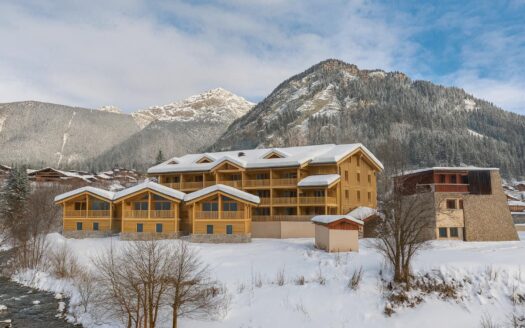The RE 2020 regulation has various impacts on the French property sector. Here is a more detailed breakdown of the effects and related statistics:
Energy efficiency targets:
- Maximum primary energy consumption reduced to 50 kWhEP/mu00b2/year on average for new buildings.
- Minimum share of renewable energies in a building’s energy mix, ranging from 20% to 40% depending on the building’s use and location.
- Maximum carbon footprint of 4 kgCO2/mu00b2/year on average, including materials production, transportation, construction, use, and end-of-life.
Elimination of gas in new-build constructions in France:
- Greenhouse gas (GHG) emission ceiling of 4 kgCO2eq/mu00b2/year in individual houses.
- Complete abolition of gas in all new real estate developments in France by 2024.
- Replacement with alternative heating methods, such as wood pellets, heat pumps, or hybrid heating solutions.

Use of bio-based materials:
- RE 2020 encourages the use of bio-based materials, such as wood, hemp, and cork insulation.
- The regulation also supports geosourced materials, like raw earth, dry stone, or brick, provided they have low environmental impact.
- Gradual reduction of steel and concrete usage in new real estate developments.
Life cycle calculation:
- Calculation to be carried out in kgCO2/mu00b2 of housing surface area.
- Emissions from various industrial sectors to be reduced by 30% in 2023, compared to 2013 levels.
Comfortable housing in summer:
- New indicator in degrees per hour (DH) created to account for the need for cooling in new constructions.
- Current threshold set at 350 DH, which must be met or exceeded.
Transition from RT 2012 to RE 2020:
- RE 2020 is more efficient, less energy-intensive, and less impactful on the environment.
- RE 2020 sets the energy efficiency threshold at 12 kWh/mu00b2/year, compared to the RT 2012’s 50 kWh/mu00b2/year.

The French government has also introduced a series of measures to prohibit the rental of energy-intensive housing, with various deadlines set to tighten regulations on rental properties classified as F, G, and E.
Overall, the RE 2020 regulation is expected to lead to increased construction costs, but it will also stimulate innovation and create new opportunities for businesses specializing in energy efficiency and renewable energies. It will ultimately result in energy bill savings for occupants and help reduce the environmental impact of new buildings.
By 2023, homes located above the energy indecency threshold will become unfit for rental. This applies to properties that consume more than 450 kWh/m2 per year in final energy (not primary energy like the DPE calculation). According to official figures, 191,000 properties will be affected by this measure in 2022.
By 2025, all G-class properties become prohibited (with energy consumption exceeding 420 kWh/m2/year).
By 2028, the rental ban extends to F-class energy homes and apartments.
By 2034, E-class properties will also fall under the category of indecent housing and therefore will no longer be able to welcome new tenants.
In addition, just like in the case of rentals, the sale of energy-intensive housing will also require the owners to carry out an energy audit before selling it. This is similar to the DPE but more comprehensive and precise, with improvement scenarios. Initially planned for January 1st and then September 2022, this measure will finally become effective on April 1st, 2023.


